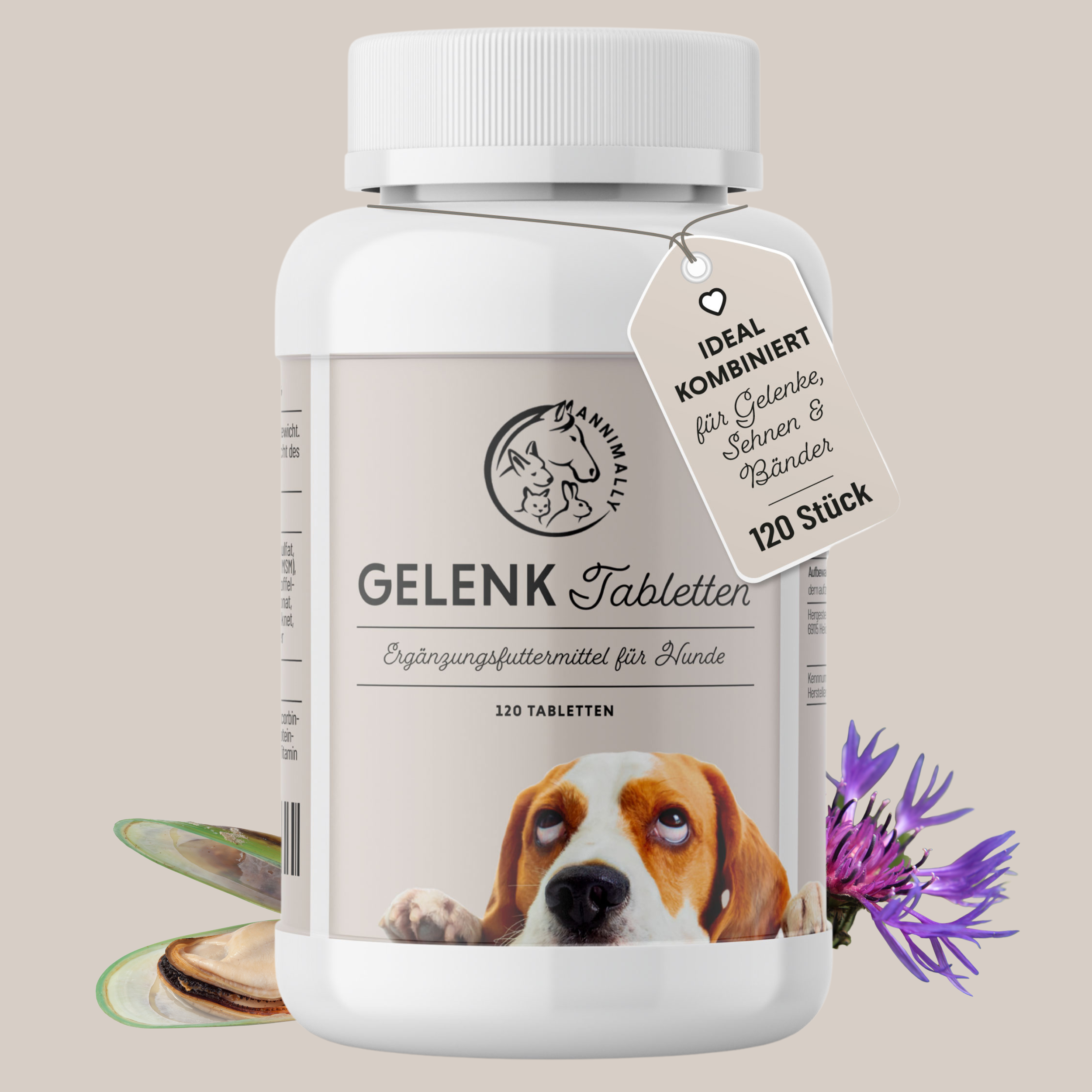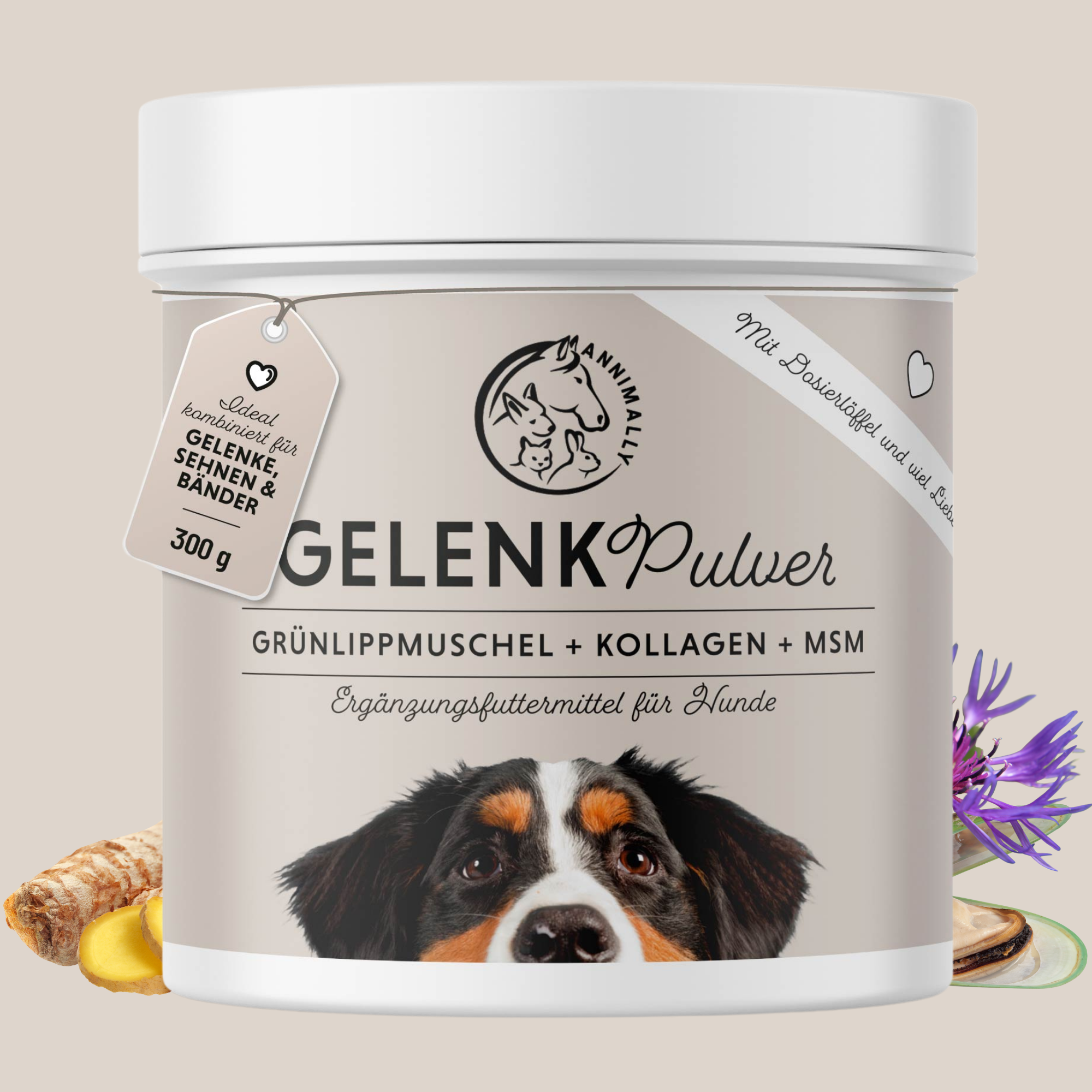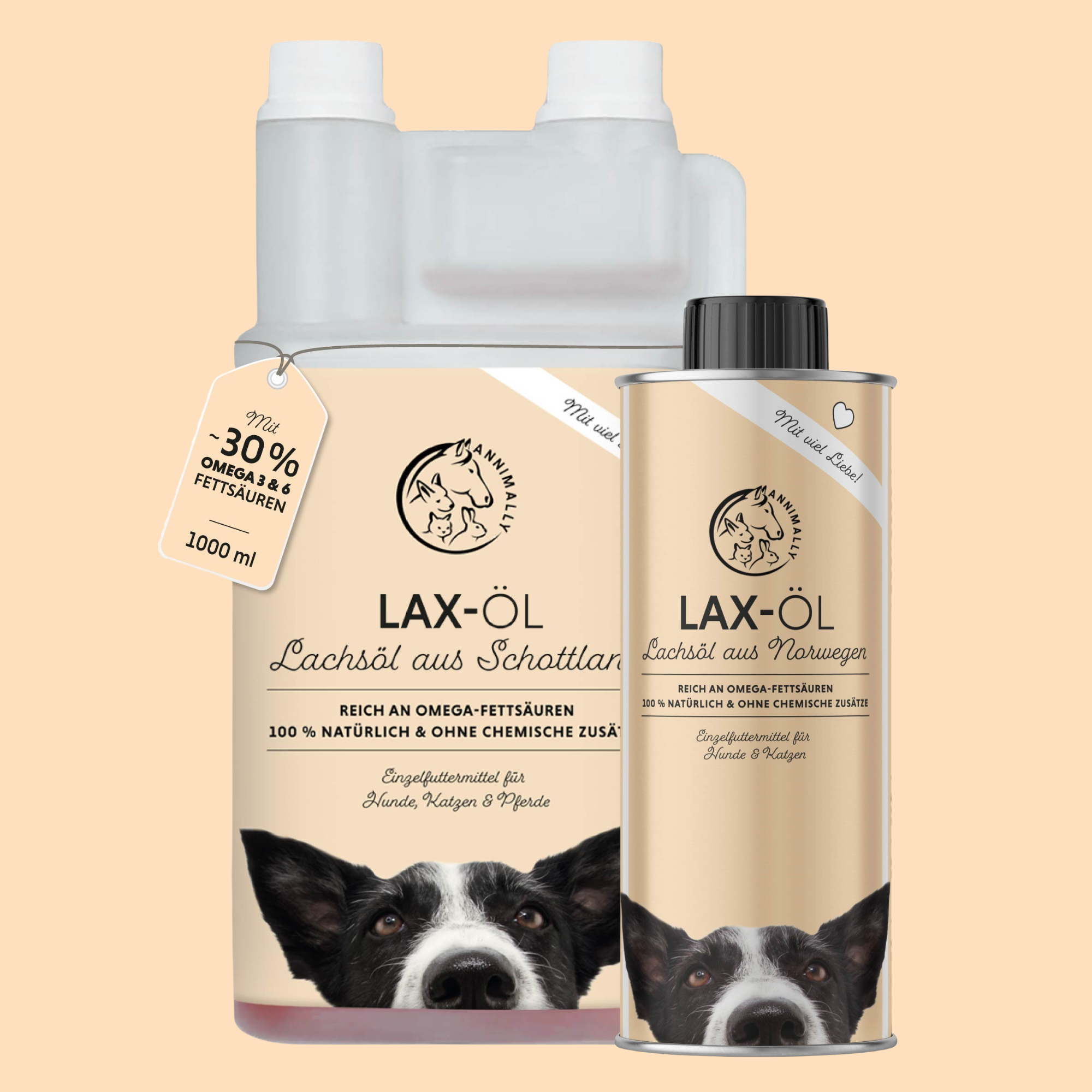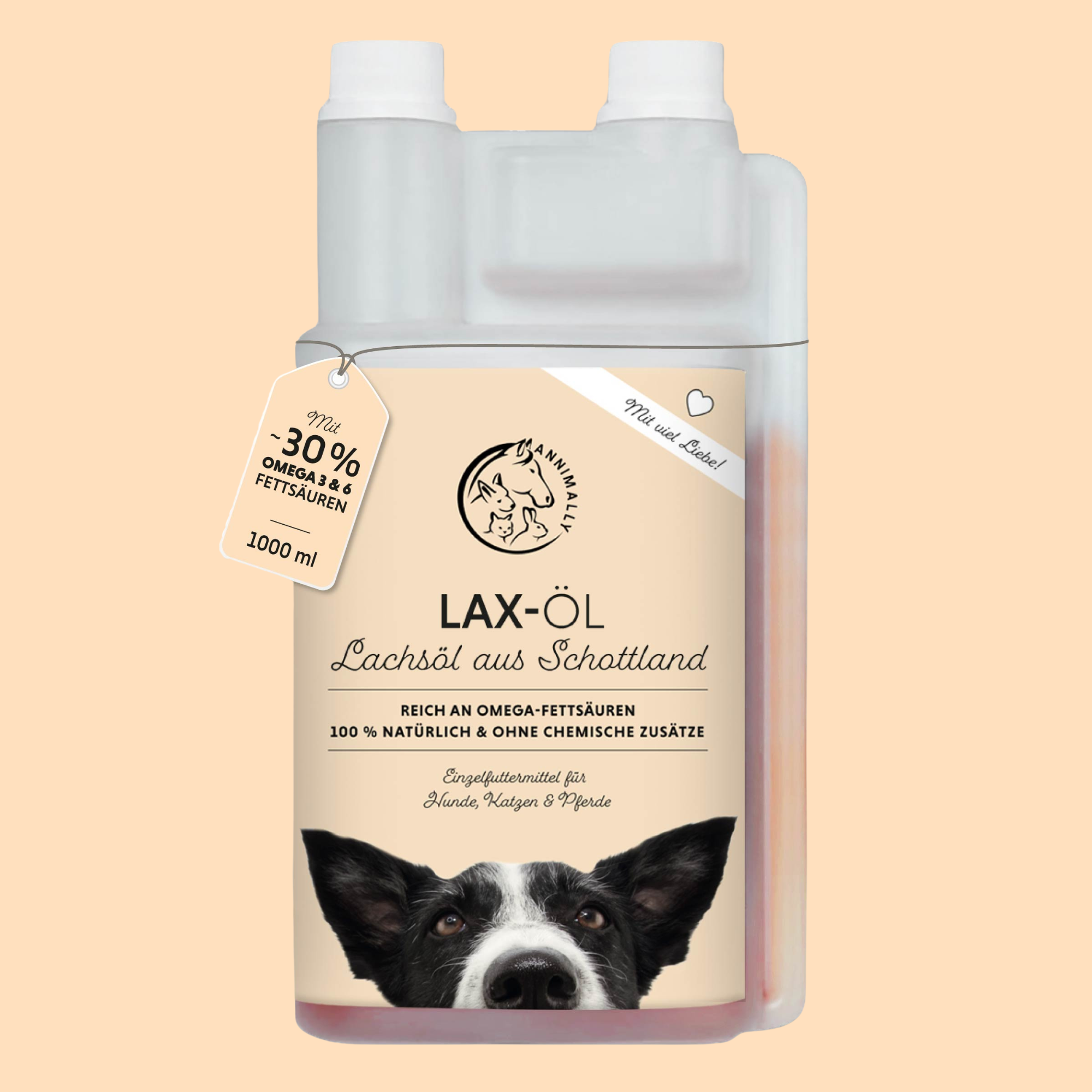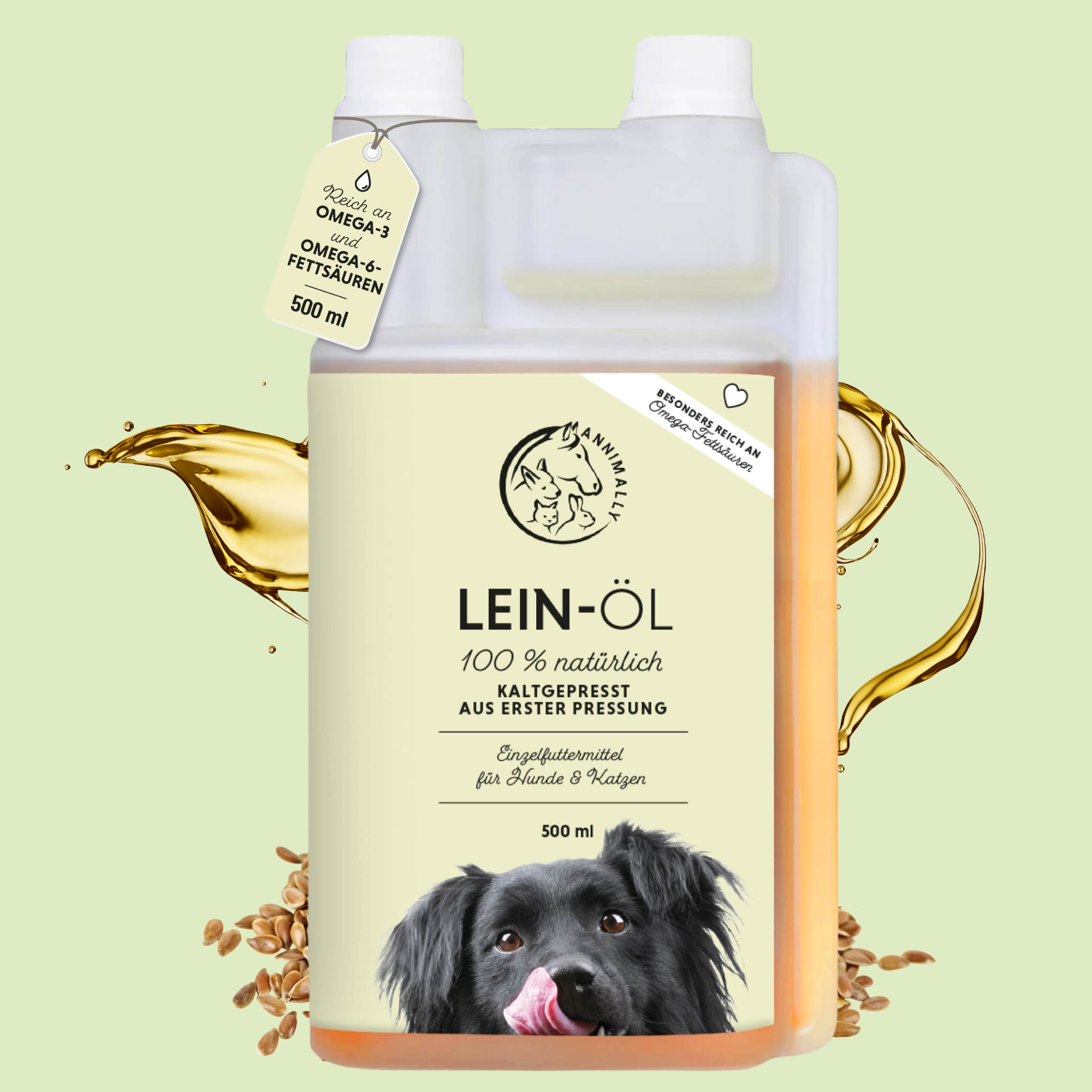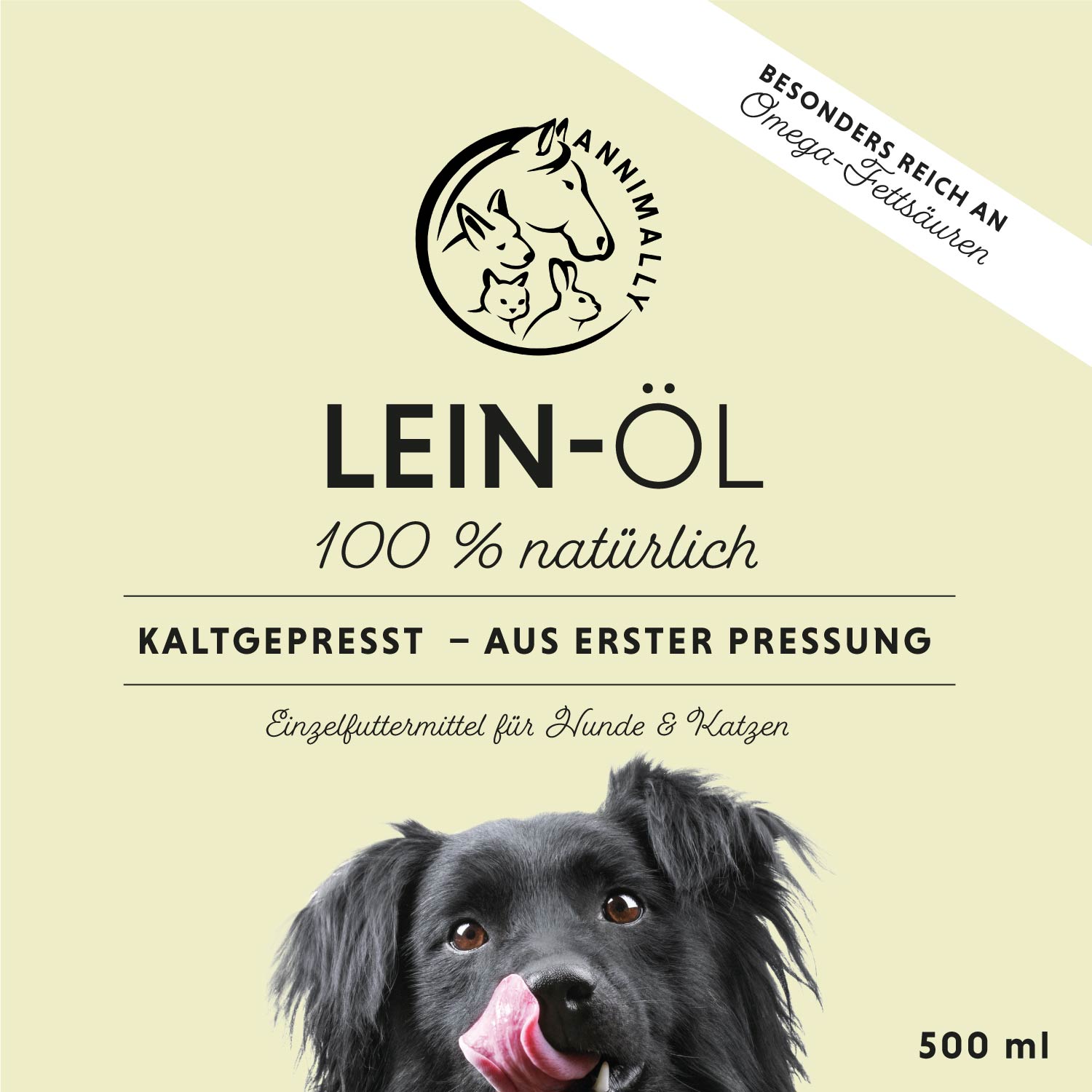Meadowsweet herb for dogs: Natural support for joints, stomach and immune system
Meadowsweet (Filipendula ulmaria), also known as meadowsweet, is a versatile medicinal plant with impressive health benefits for humans and animals. This plant, part of the rose family, grows primarily in damp meadows, along riverbanks, and in marshy areas and was already valued for its healing properties in the Middle Ages. Meadowsweet can be particularly beneficial for dogs, but also for horses.
The natural ingredients of meadowsweet, including essential oils, tannins, flavonoids, vitamin C and other important vitamins, have a positive effect on joint function, metabolism, digestion and the immune system.
Due to the natural content of acetylsalicylic acid in meadowsweet, the main ingredient in aspirin, meadowsweet herb is often used as an herbal painkiller that can gently help with joint problems, inflammation, and pain.
But how exactly does meadowsweet affect dogs? What properties make it so valuable for your four-legged friend's health? And how can you incorporate the plant into your dog's daily diet as a single food item?
In this article, you'll learn all about the connection between Filipendula ulmaria and the natural support of joints, the gastrointestinal tract, and the immune system.

Meadowsweet herb (Filipendula ulmaria): origin and special ingredients
Meadowsweet belongs to the rose family and is a perennial plant that can grow up to 1.5 meters tall. Its characteristic white flowers have an intensely sweet fragrance and contain valuable secondary plant substances. The leaves are deep green and slightly serrated, and the stems are sturdy and robust.
Even our ancestors knew about the healing properties of this special plant. In the Middle Ages, meadowsweet was used as a natural remedy for pain and inflammation, and even today it is valued as a gentle alternative to chemical painkillers.
The most important ingredients of meadowsweet herb are:
-
Acetylsalicylic acid – known for its analgesic and anti-inflammatory effects
-
Essential oils – support blood circulation and promote natural healing
-
Flavonoids – have an antioxidant effect and strengthen the immune system
-
tannins – protect the mucous membranes and promote the function of the digestive tract
-
Vitamin C – strengthens the immune system and supports metabolism
-
Other vitamins and minerals that have a positive effect on the entire organism
This unique combination makes meadowsweet a valuable supplement for dogs suffering from joint problems, gastrointestinal complaints, or a weak immune system.
Meadowsweet herb for dogs: Natural help for health and well-being
1. Support for your dog's joints and musculoskeletal system
Many dogs, especially older dogs or those with joint problems, suffer from limited mobility. Meadowsweet herb can provide important relief in these cases. Thanks to its acetylsalicylic acid content, it acts as a natural painkiller that can relieve joint inflammation.
The flavonoids and essential oils it contains promote blood circulation, which in turn supports the healing of damaged tissue. In the long term, meadowsweet can therefore help improve your dog's mobility and enhance their quality of life.
2. Gentle help for the gastrointestinal tract
Meadowsweet herb has a soothing effect on the gastrointestinal tract and can help with problems such as flatulence, stomach irritation, minor infections, or even ulcers. The tannins it contains protect the mucous membranes, while flavonoids have an anti-inflammatory effect.
Dogs with sensitive stomachs or digestive problems in particular benefit from the calming effect of meadowsweet.
3. Strengthening the immune system of dogs
Thanks to its high content of vitamin C and other important vitamins, meadowsweet herb can strengthen your dog's immune system. It supports metabolism and helps protect the body against infections, bacteria, and inflammation.
Especially in the cold months or for dogs with a weakened immune system, a regular dose of meadowsweet can be a valuable support.
4. Protection of the respiratory tract
The essential oils contained in meadowsweet herb have an expectorant and soothing effect on the respiratory tract. Dogs prone to coughing or bronchial complaints can particularly benefit from this property.
Application: How can you give meadowsweet herb to your dog?
The herb is available in various forms—dried herb, flowers, powder, or liquid extract. Here are some ways you can incorporate it into your dog's daily diet:
-
Dried leaves or flowers : Simply mix into the food.
-
Tea : Pour hot water over the dried meadowsweet herb, allow to cool and add to the drink or feed.
-
Powder or extract : Easily dosed option for targeted support.
The right amount of meadowsweet herb for dogs
The dosage depends on the size and weight of the dog:
-
Small dogs (up to 10 kg): 0.5–1 g daily
-
Medium-sized dogs (10–25 kg): 1–2 g daily
-
Large dogs (over 25 kg): 2–3 g daily
Be sure to start with a small amount and observe your dog's reaction.
Are there any side effects when using meadowsweet herb in dogs?
Although meadowsweet is a valuable medicinal plant with numerous positive properties, there are a few points you should consider when using it for your dog.
1. Sensitivity to acetylsalicylic acid
Meadowsweet contains a natural precursor to acetylsalicylic acid, which has a similar effect to aspirin. This means it has anti-inflammatory and pain-relieving properties, but can also cause adverse reactions in sensitive dogs.
Especially animals with a known intolerance to acetylsalicylic acid should not be given meadowsweet. Symptoms of intolerance may include:
-
Stomach pain or discomfort
-
Loss of appetite
-
Vomit
-
Diarrhea
If you are unsure whether your dog is sensitive to this active ingredient, you should first test giving meadowsweet in a very small amount and carefully observe your dog's reaction.
2. Caution if you have gastrointestinal problems
Although meadowsweet has a soothing effect on the gastrointestinal tract for many dogs, it can also be counterproductive in certain cases. Dogs already suffering from gastrointestinal ulcers, an irritated stomach lining, or a tendency to excess stomach acid should only be given meadowsweet with caution or not at all.
Although the tannins contained in it can have an anti-inflammatory effect, they can also irritate the stomach lining of sensitive dogs, especially if given in too high quantities.
3. Blood thinning effect
The acetylsalicylic acid it contains has a mild blood-thinning effect, which is generally unproblematic, but should be considered in certain health conditions. Dogs who:
-
suffer from blood clotting disorders,
-
are about to undergo surgery or are currently in the process of healing wounds,
-
receive blood-thinning medication,
should only be given meadowsweet after consulting a veterinarian.
4. Possible allergic reactions
As with any plant, meadowsweet herb can cause individual intolerance or allergic reactions in dogs. This is rare, but cannot be ruled out. Initial signs of an allergic reaction may include:
-
Rash or itching
-
Redness or swelling
-
Breathing problems or cough
-
Digestive problems such as diarrhea or vomiting
If you notice such symptoms after administering meadowsweet, you should discontinue use immediately and monitor your dog. In case of severe reactions, a visit to the veterinarian is recommended.
5. Avoid overdose
As with many medicinal herbs, the right amount is crucial for meadowsweet. Too much can lead to stomach upset, diarrhea, or general malaise.
6. Not recommended for pregnant or lactating bitches
Because meadowsweet can have a blood-thinning effect and may affect hormonal processes, it is not recommended for pregnant or lactating dogs. If you wish to use it, you should consult a veterinarian first.
Conclusion: Natural power for your dog’s health
Meadowsweet herb, Filipendula ulmaria, is a valuable natural support for dogs with joint problems, gastrointestinal complaints, or a weak immune system. Thanks to the diverse properties of this medicinal plant, your dog can gently benefit from increased mobility, improved digestion, and stronger health.
Use the power of nature for your dog – without synthetic pain medication!







